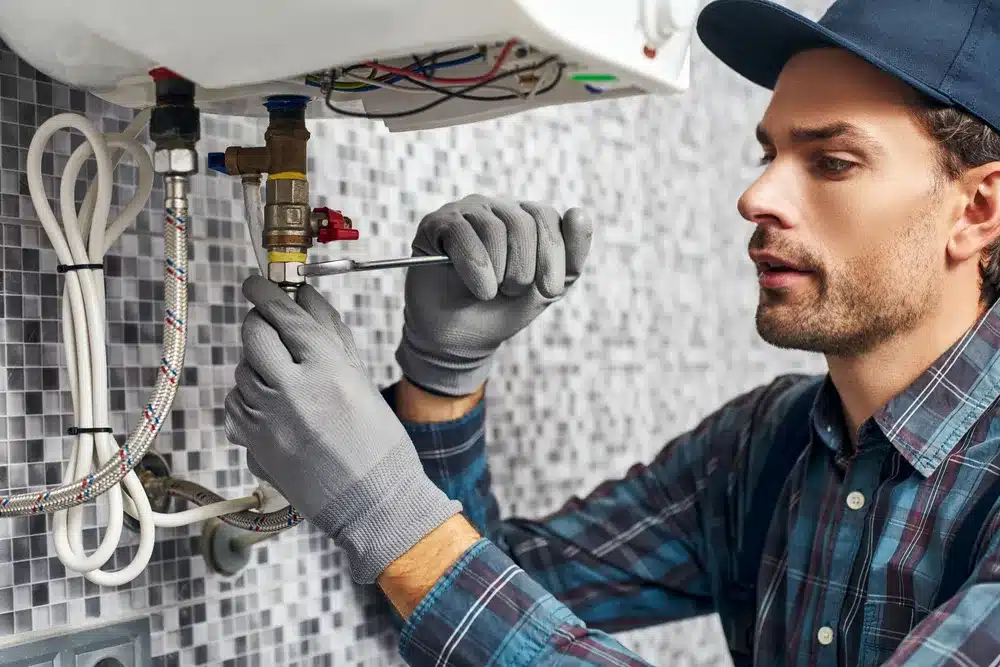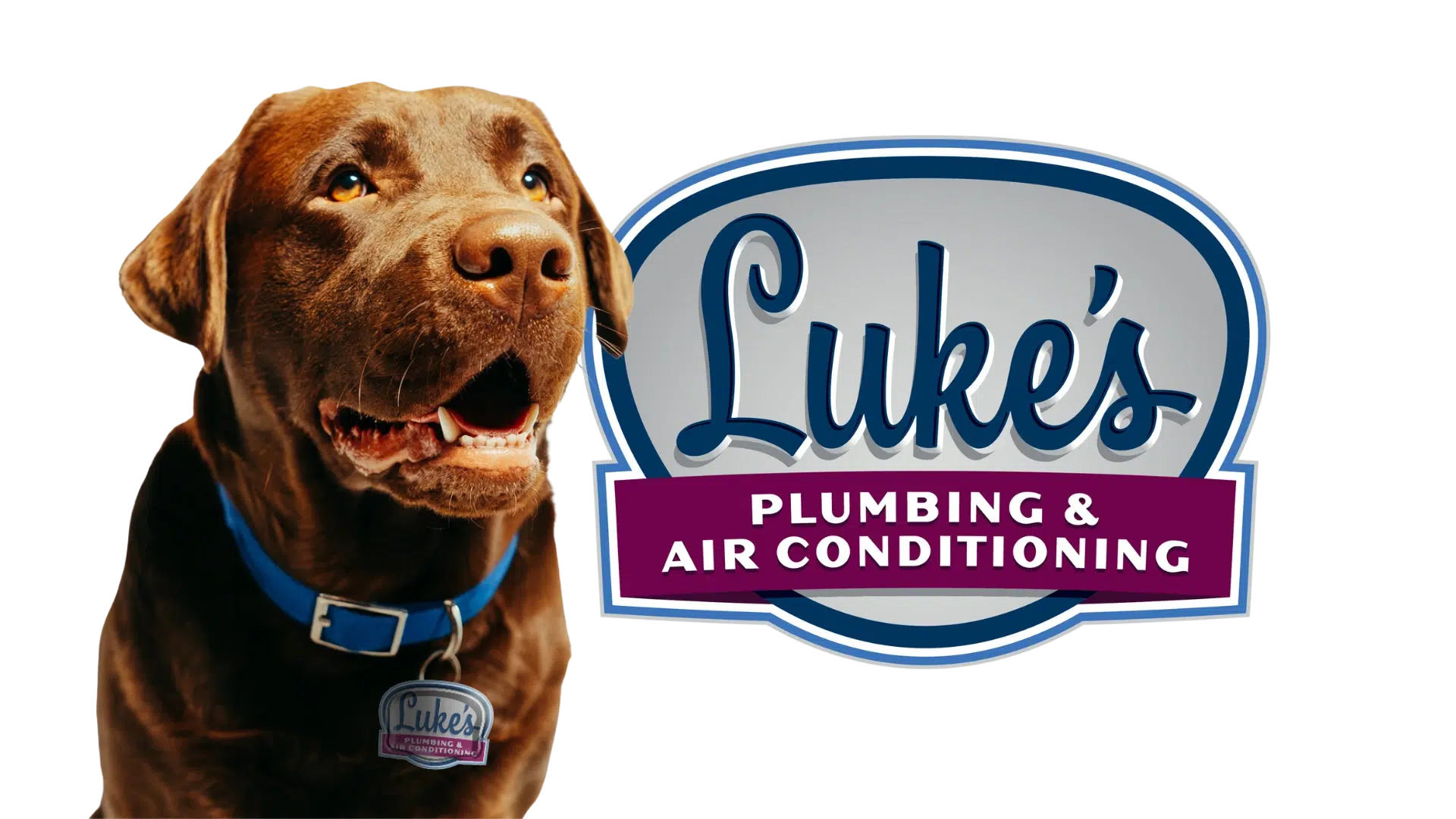DIY or Call a Pro? Water Heater Repairs You Can (and Can’t) Do Yourself
Servicing Houston, TX For Over 30 Years

It starts with a quick cold shower and ends with a flooded garage. If you live in Houston, your water heater is under constant demand—showers, laundry, dishes, and humidity all take their toll. When something goes wrong, the big question becomes: should you fix it yourself or call a professional?
This guide, put together by the Houston plumbing experts at Luke’s Plumbing & Air Conditioning, breaks down the repairs you can safely handle on your own, the ones that should always go to a pro, and how to keep your Houston water heater running smoothly all year long.
Why Water Heater Know-How Matters in Houston
Water heaters in Texas face unique challenges. High humidity and hard water cause sediment to build up faster, which reduces efficiency and drives up energy costs. Knowing which maintenance tasks are safe to tackle can help prevent breakdowns and save you from costly emergencies.
If you suspect a larger issue or want expert help, check out our Houston water heater repair services to see how professionals handle more complex problems.
Repairs You Can Handle on Your Own
Before starting any DIY work, always turn off the power (for electric units) or gas (for gas units) and shut off the cold-water supply valve. Once you’ve done that, these fixes are generally safe for homeowners.
Relighting the Pilot Light
If your gas water heater isn’t producing hot water, a blown-out pilot light is often to blame. Windy Houston storms can easily snuff it out, especially in garages or utility rooms.
Follow the lighting instructions printed on your unit. If the flame won’t stay lit or you smell gas, stop and call for professional water heater repair.
Flushing Sediment from the Tank
Houston’s mineral-rich water can leave a thick layer of sediment inside your tank, causing popping noises and sluggish performance.
To flush it:
- Turn off power or gas.
- Attach a garden hose to the drain valve near the bottom.
- Run the hose to a floor drain or outside area.
- Open the valve and drain several gallons until the water runs clear.
Doing this once a year extends your heater’s lifespan and keeps your energy bills down. Luke’s offers water heater maintenance in Houston if you prefer a professional touch.
Adjusting the Thermostat
Your water heater should be set to around 120°F for safety and efficiency.
On gas models, the control is usually near the base. For electric units, flip the breaker first, remove the access panel, and turn the adjustment screw slightly. Lowering the temperature in summer can also reduce energy use during Houston’s peak heat months.
Tightening Loose Connections
Small leaks can often come from loose fittings or valves. Tighten them carefully with a wrench, but if the leak continues or corrosion appears, that’s a sign it’s time to call a professional.
Water Heater Repairs Best Left to the Pros
Some jobs require more than a wrench and YouTube tutorial. When repairs involve gas, electricity, or pressurized water, professional help isn’t just safer—it’s essential.
Gas Line or Burner Problems
If you ever smell gas, evacuate your home immediately and contact your gas company. After that, call a plumber. Gas line and burner repairs require proper tools, testing equipment, and licensing. Attempting to fix these yourself can lead to fires, explosions, or carbon monoxide leaks.
Electrical Malfunctions
Many Houston homes have electric water heaters that use high-voltage components. If your breaker keeps tripping, or your heater has stopped working entirely, resist the urge to open it up. Electrical shocks and fires are real risks here.
Replacing Heating Elements or Anode Rods
While some experienced DIYers attempt this, it involves draining the tank and using specialized tools to remove the elements. A single cross-threaded connection can cause leaks and internal damage. If your system’s age or performance suggests deeper issues, a professional water heater technician can inspect it and make precise repairs.
Major Leaks or Full Tank Failure
When the tank itself leaks, replacement is the only fix. Houston homeowners often discover this after waking up to a wet garage or closet. A licensed plumber can handle the installation quickly and safely. This might also be the time to explore tankless water heater options for better efficiency and endless hot water.
How to Decide When to DIY and When to Call
If you’re unsure what category your problem falls into, use this simple guide:
- Pilot light out: Safe to relight once. If it won’t stay lit, call a pro.
- Sediment buildup: Okay to flush, unless valves are stuck or leaking.
- Thermostat adjustment: Fine to do yourself, unless the unit loses power afterward.
- Gas smell: NEVER DIY. Leave the house and call a plumber right away.
- Electrical issues: NEVER DIY. Contact a licensed technician.
- Leaking tank: Do not attempt to repair. Needs professional repair or replacement.
When in doubt, prioritize safety. Water heaters combine gas, electricity, and high pressure—all things that can become dangerous quickly!
Why Calling a Houston Plumber Can Actually Save You Money
DIY repairs can seem cheaper, but they often cost more in the long run when mistakes lead to damage or inefficiency. Working with a local plumber gives you:
- Fast response times during emergencies like burst tanks or storm damage
- Familiarity with Houston’s hard water, humidity, and plumbing codes
- Warranties on both labor and equipment
- Long-term maintenance that extends your system’s life
At Luke’s Plumbing & Air Conditioning, our licensed Houston technicians specialize in efficient, reliable water heater service. Whether it’s a small repair or a full replacement, we’ll help you find the smartest and safest solution for your home.
Stay Safe, Stay Warm, and Know When to Step Back
There’s no shame in leaving tricky repairs to the pros. Handling your own maintenance—like flushing the tank or adjusting the thermostat—keeps your system running efficiently, but once you hit electrical or gas territory, it’s best to get help.
Call (713) 686-7000




